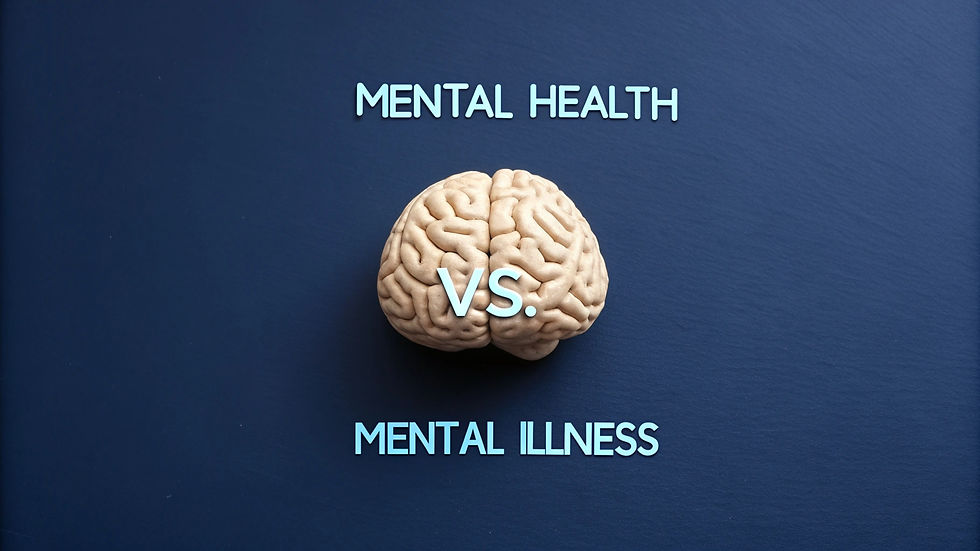What is Anxiety? Insights from an Anxiety Management Psychiatrist
- Seo Services
- Mar 27, 2025
- 2 min read
Updated: May 26, 2025

Anxiety is a natural human response to stress, and it serves as a biological alarm system designed to alert us to threats, allowing us to take measures to protect ourselves. However, when anxiety becomes chronic or overwhelming, it can disrupt daily life and well-being. This is where understanding anxiety, its symptoms, and its management becomes crucial.
Understanding Anxiety Disorders
Anxiety disorders are the most common mental health condition in the United States, affecting millions of people each year. Unlike the relatively mild, brief anxiety caused by a stressful event (such as speaking in public or on a first date), anxiety disorders last at least six months and can worsen if not treated. These disorders manifest in various forms, including generalized anxiety disorder, panic disorder, and various phobia-related disorders.
Role of an Anxiety Management Psychiatrist
An anxiety management psychiatrist specializes in diagnosing and treating mental health conditions that cause excessive fear or worry. They use a combination of psychotherapy, medication, and lifestyle adjustments to help patients manage their symptoms effectively. Through therapy sessions, psychiatrists can help patients understand the roots of their anxiety, develop healthier thinking patterns, and adopt relaxation techniques.
Current Trends in Anxiety Management
The approach to managing anxiety has evolved significantly with advances in technology and medicine. Today, psychiatrists often recommend a combination of therapy and medication, supported by digital tools like apps for meditation and mindfulness. Additionally, there's a growing emphasis on personalized care plans that consider each patient's unique circumstances and needs.
Why Early Intervention Matters
Early intervention in anxiety disorders can significantly improve the prognosis. When treated promptly, individuals can learn effective coping strategies that prevent the disorder from escalating and affecting their quality of life.
FAQs about Anxiety
1. What are the common symptoms of anxiety?
Common symptoms include excessive worry, restlessness, difficulty concentrating, muscle tension, and sleep disturbances.
2. Can anxiety be cured?
While anxiety disorders can't permanently be cured, they can be managed successfully with the proper treatment approach, allowing individuals to live whole and productive lives.
3. How does therapy help with anxiety?
Therapy helps by allowing individuals to discuss their fears and anxieties in a safe environment and learn coping mechanisms to manage their anxiety effectively.
4. Are there any lifestyle changes that can help with anxiety?
Yes, regular physical activity, a healthy diet, sufficient sleep, and mindfulness exercises can significantly reduce symptoms of anxiety.
5. What should someone do if they think they have anxiety?
If you suspect you have anxiety, the first step is to consult with a healthcare provider or a psychiatrist who can provide a diagnosis and discuss the best treatment options.
Transform Your Mental Well-Being
At Brain Health Solution, we understand that dealing with anxiety can be challenging. Dr. Bhatia, our board-certified Psychiatrist is here to support you with personalized care tailored to your unique needs. Learn more about our comprehensive psychiatric services and take the first step toward improving your mental health today.
By diving deep into the realm of anxiety management with the guidance of expert psychiatrists, this blog aims to illuminate the path to understanding and managing anxiety, empowering readers to take charge of their mental health in informed and effective ways.
.png)



Comments